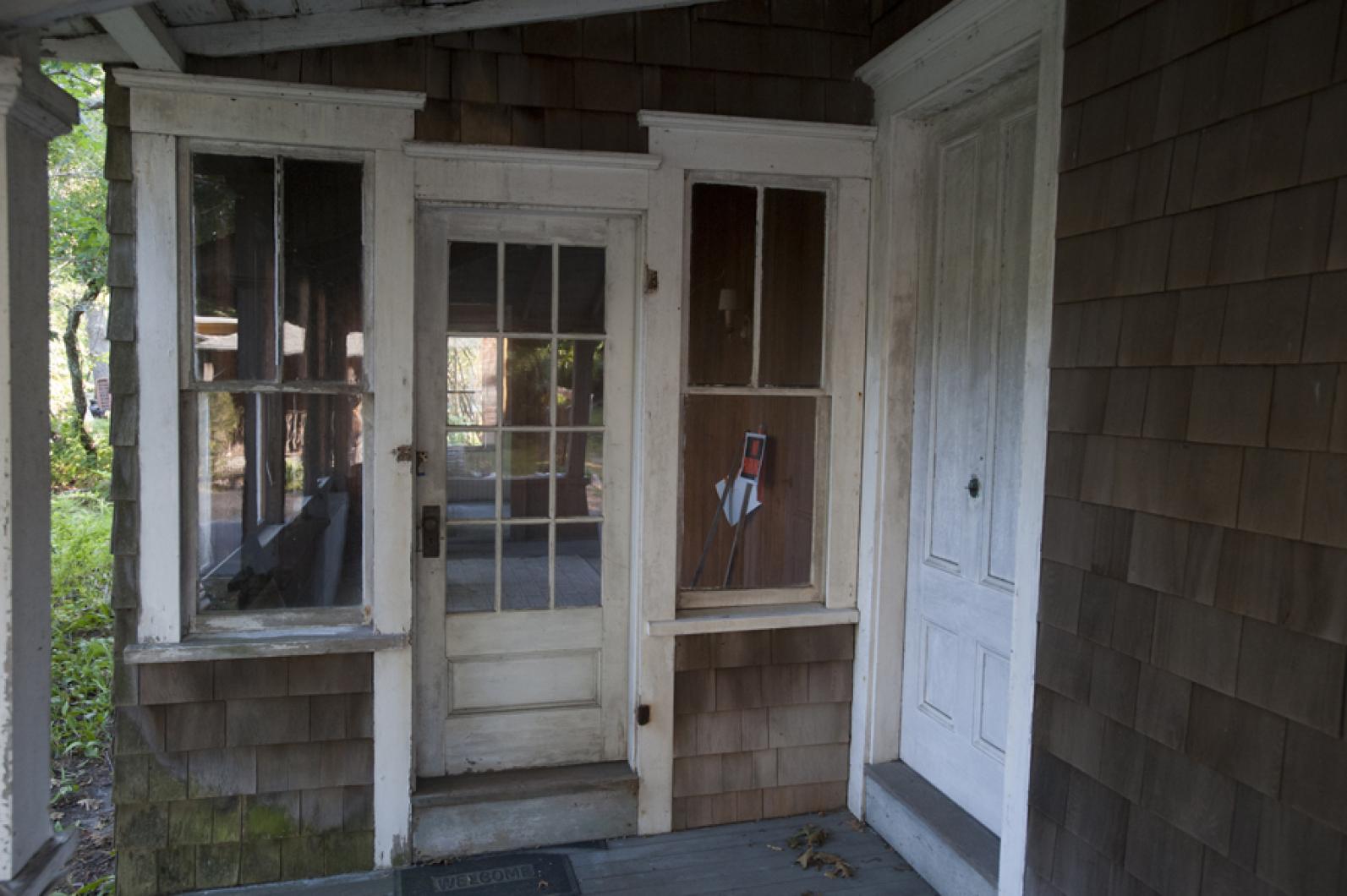If the effort to save the Denniston House in Oak Bluffs was a thorny process, demolishing it may prove just as difficult. In a unanimous vote, the Oak Bluffs historical commission determined on Wednesday that the old house meets the definition of a historically significant building.
The vote was largely procedural; a public hearing on a request to demolish the building is now set for Dec. 8, when the commission will determine whether the Denniston House should be “preferably preserved,” a move that would block any alterations to the building for six months.
The meeting drew strong emotions, both from those who wish to preserve the building and from Island Affordable Housing Fund members who are seeking a permit to tear it down on behalf of potential buyers. The emotions reached a head when historical commission member David Wilson said the property should once again go before the Martha’s Vineyard Commission for review as a development of regional impact (DRI).
The vote to declare the house historically significant passed with little discussion; the building easily met the historical commission’s criteria as it is over 100 years old and associated with historic people and events relating to the cultural history of the town. The Masonic avenue house was dedicated as a mission for Portuguese immigrants in 1895 and later became the site of the Island’s first African American church under the leadership of the Rev. Oscar Denniston.
But after the vote Mr. Wilson urged the commission to refer the matter to the MVC as a DRI. The fund’s failed Bradley Square development plans for the property have been reviewed by the commission twice.
“You’ve already determined that it’s significant,” Mr. Wilson told his fellow commission members. “This would be the appropriate time to refer it to the MVC.”
Historical commission member Priscilla Sylvia said any decision to refer the property to the MVC should happen after the historical commission’s public hearing in December.
Mr. Wilson disagreed.
Other commission members sided with Mrs. Sylvia and in the end the matter was not referred to the MVC.
But first Mr. Wilson lamented the board’s reluctance to act quickly in saving the structure.
“A lot of us in the community have been passionately dedicated to the saving of this structure,” he said. “This is the Oak Bluffs historical commission — if you folks are not interested in acting expeditiously on saving this property, which you already voted is significant, then why are we here?” he added.
“Because we’re following the process that the bylaw requires from the demolition permit,” Mrs. Sylvia replied.
At the conclusion of the meeting Mr. Wilson handed Mrs. Sylvia a copy of the MVC bylaws, to which she responded: “You’ve given me some papers that I don’t need, or want.”
Meanwhile, T. Ewell Hopkins, executive director of the Island Affordable Housing Fund, was present at the meeting but was not permitted to speak because the meeting was not a public hearing.
After the meeting he told the Gazette he was frustrated by the process.
“I’m very concerned that right now what I’m hearing is a process that’s looking to maximize the amount of time we can delay versus determining what we should do and determining how much time that takes,” he said, adding:
“They’re looking at it like we can delay it six months and we can go to the MVC. That’s not what we should be doing as a community. As a community we should define what needs to happen and then take those steps. Don’t focus on how much time we can delay, because time is money.”
The fund’s deep financial troubles currently center on a $750,000 mortgage that the Martha’s Vineyard Savings Bank holds on the Bradley Square property; the fund has no ability to repay the note until the property is sold.
“If I can honor the historical commission’s needs in three weeks and they want to have another five months and a week just because they have it, I don’t think that’s working together in a considerate way,” Mr. Hopkins said.
After this story was published, Priscilla Sylvia notified the Gazette that Mr. Wilson had mistakenly passed her private papers, rather than the MVC bylaws.







Comments (1)
Comments
Comment policy »